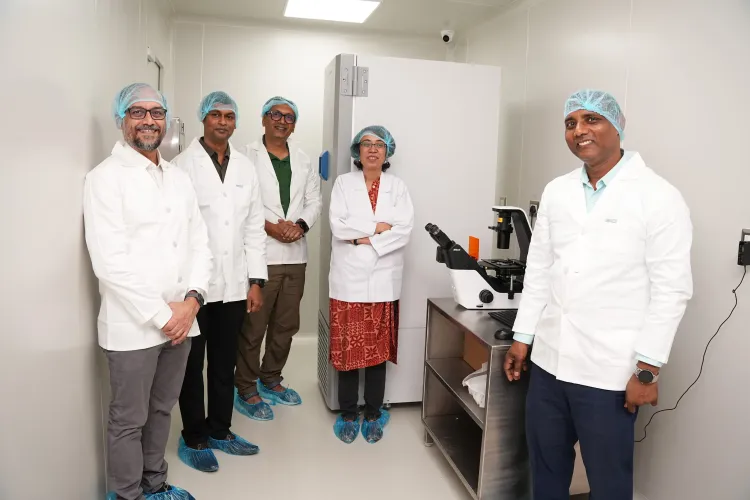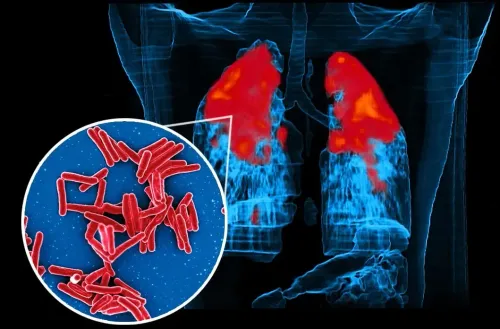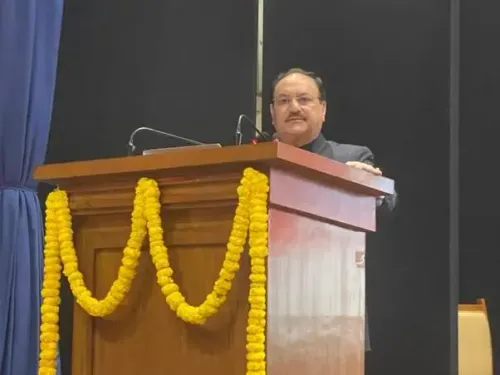What Innovations Does IIT Delhi's New BSL3 Lab Bring for Infectious Pathogen Research?

Synopsis
Key Takeaways
- IIT Delhi has launched a state-of-the-art BSL3 facility.
- It focuses on research for class-3 pathogens.
- The facility supports both academic and industrial research.
- Startups can leverage the lab for rapid prototyping.
- Opportunities for collaboration with medical institutions are enhanced.
New Delhi, Aug 20 (NationPress) In an effort to transform the landscape of biomedical and clinical diagnostics research, the Indian Institute of Technology (IIT) Delhi officially opened a Biosafety Level 3 (BSL3) facility on Wednesday.
This state-of-the-art facility is designed to advance research on diagnostic tools and therapies for class-3 pathogens, making it the pioneering initiative among prestigious educational institutions in India.
This significant milestone enhances India's capabilities in biomedical research and underscores IIT Delhi's dedication to fostering innovation in healthcare technology.
“This new research and testing facility will empower research and innovation in medical diagnostics and therapeutics, supporting IIT Delhi’s mission to serve both academia and industries in the healthcare research sector, thus uniting scientists and engineers to conduct groundbreaking research. It will create numerous opportunities for collaborative research with medical institutions in the NCR region and beyond,” stated Prof. Arvind Nema, Deputy Director (Operations) at IIT Delhi.
The newly inaugurated research facility is situated within the Micromodel Complex on campus, operating under the framework of IIT Delhi's Central Research Facility (CRF). It will be accessible to researchers from both academia and industry on a paid basis, following CRF guidelines for short- to medium-term use.
The BSL3 research facility is expected to be highly beneficial for startups and MSMEs, allowing them to bring in their hardware and personnel for rapid iterations without the need to invest in such specialized facilities.
“We are thrilled to introduce a new dimension to the medical diagnostics ecosystem at IIT Delhi. Unlike existing BSL3 facilities in India, this will allow users to bring their medical devices inside the unit and test them under the supervision of trained professionals skilled in handling class-3 pathogens. This will enable hardware and software engineers to debug and optimize their diagnostic platforms right within the facility,” remarked Prof. Sandeep K. Jha from the Centre for Biomedical Engineering, who oversees the facility.
“This type of assisted entry has never been offered in the country before, forcing device developers to send their products to specialized BSL3 and BSL4 labs for testing, which complicated the process of quickly enhancing device performance,” said Prof. Ashok K. Patel from the Kusuma School of Biological Sciences at IIT Delhi, who co-led this initiative.










